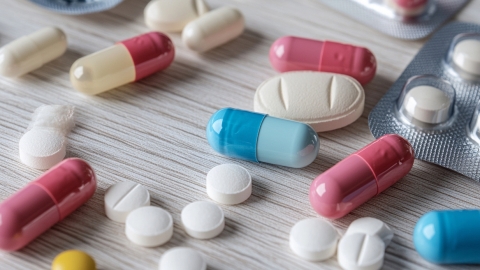What medication should be taken after anal fistula surgery?
Generally, medication used after anal fistula surgery aims to prevent infection, relieve pain, promote wound healing, and maintain smooth bowel movements. Patients may follow medical advice to use medications such as cefdinir dispersible tablets, ibuprofen sustained-release capsules, kangfuxin liquid, lactulose oral solution, and compound carrageenan suppositories. Specific details are as follows:
1. Cefdinir Dispersible Tablets
This is a cephalosporin antibiotic with broad-spectrum antibacterial activity. It has strong bactericidal effects against common pathogens such as *Staphylococcus aureus* and *Escherichia coli*, effectively preventing and controlling bacterial infections at the surgical site after anal fistula surgery, thus creating favorable conditions for wound healing.

2. Ibuprofen Sustained-Release Capsules
As a nonsteroidal anti-inflammatory drug (NSAID), it exerts analgesic and anti-inflammatory effects by inhibiting prostaglandin synthesis. It helps alleviate postoperative wound pain and reduce local inflammatory reactions, thereby improving patient comfort.
3. Kangfuxin Liquid
This medicine promotes blood circulation, nourishes yin, and stimulates tissue regeneration. It enhances local blood flow, accelerates granulation tissue growth at the wound site, aids in repairing damaged anal mucosa after surgery, and shortens healing time.
4. Lactulose Oral Solution
By regulating intestinal osmotic pressure, it draws water into the intestinal lumen to soften stools, preventing pain and bleeding caused by hard feces rubbing against the surgical wound during defecation, ensuring smooth bowel movements after surgery.
5. Compound Carrageenan Suppositories
These suppositories form a protective film over the anal mucosa and wound surface, reducing irritation from feces. They also have anti-inflammatory, hemostatic, and antipruritic properties, helping to relieve local discomfort after surgery and promoting wound healing.
In daily life, patients should develop regular bowel habits, consume more dietary fiber-rich foods such as vegetables, fruits, and whole grains, avoid spicy and irritating foods, and keep the anal area clean and dry to facilitate recovery.




